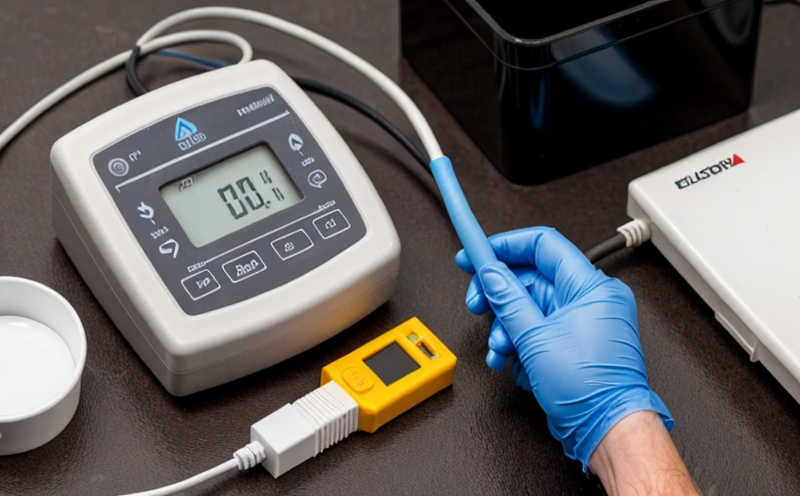CSA C22 Electrochemical Testing in Electrical Systems
The Canadian Standards Association (CSA) C22 family of standards governs electrical equipment and systems. The electrochemical testing under CSA C22 pertains to the evaluation of materials, components, and systems for their resistance to corrosive environments, particularly relevant in electrical installations.
This service ensures that electrical components are not only safe but also durable in harsh conditions. Electrochemical testing is crucial for identifying potential corrosion issues early on, which can lead to costly downtime or failures down the line. This process involves exposing specimens to specific corrosive environments and measuring their resistance over time. The results provide critical insights into material compatibility with the electrical system and help in selecting appropriate materials.
Electrochemical testing plays a vital role in ensuring that electrical systems meet regulatory requirements, enhance safety standards, and improve reliability. By conducting these tests, we can predict how different components will perform under real-world conditions, which is essential for maintaining long-term performance and reducing maintenance costs.
The process typically involves the following steps: specimen preparation, exposure to controlled environmental conditions, measurement of electrical resistance, and analysis of results. The specimens are carefully prepared based on the specific requirements of the standard being applied. Once prepared, they undergo exposure in a controlled environment that simulates real-world conditions. During this period, their electrical resistance is measured periodically.
After the test duration ends, the data collected is analyzed to assess the performance of the materials or components under evaluation. This analysis helps determine if the material can withstand the corrosive environment it will encounter in its application within an electrical system. If necessary, adjustments may be made based on this information.
The results from electrochemical testing are used for several purposes including selecting appropriate materials for new designs, ensuring existing equipment meets safety standards, and predicting potential failure points in electrical systems. This service is particularly important for sectors like manufacturing, utilities, and infrastructure where reliable electrical systems are critical to operations.
| Application Area | Description |
|---|---|
| Manufacturing | Evaluating materials used in manufacturing processes for durability and safety. |
| Utilities | Ensuring electrical components are resistant to corrosion in power generation and distribution systems. |
| Infrastructure | Testing materials for durability and performance in critical infrastructure projects involving electrical systems. |
Industry Applications
- Evaluating materials used in manufacturing processes for durability and safety.
- Ensuring electrical components are resistant to corrosion in power generation and distribution systems.
- Testing materials for durability and performance in critical infrastructure projects involving electrical systems.
International Acceptance and Recognition
- The results of CSA C22 electrochemical testing are widely recognized by regulatory bodies across North America.
- Compliance with these standards ensures compatibility with international safety requirements for electrical equipment.
Use Cases and Application Examples
This service is particularly useful in industries where electrical systems are exposed to corrosive environments. For instance, in the manufacturing sector, it helps ensure that materials used in processes can withstand harsh conditions without compromising safety or performance.
In utilities, this testing ensures that power generation and distribution equipment remains reliable and safe from corrosion. This is crucial for maintaining uninterrupted service during critical times. In infrastructure projects, such as building smart grids or upgrading existing systems, the durability of materials used in electrical components is a key factor. Electrochemical testing helps ensure these components can operate efficiently over long periods without failure.
For example, a utility company might use this service to assess the corrosion resistance of steel conduits used in underground power distribution lines. By identifying potential issues early on through electrochemical testing, they can take preventive measures to avoid costly repairs or replacements later. Similarly, an infrastructure project may involve using this service to evaluate the durability of materials for outdoor electrical installations, ensuring they can withstand environmental stresses like humidity and temperature fluctuations.





